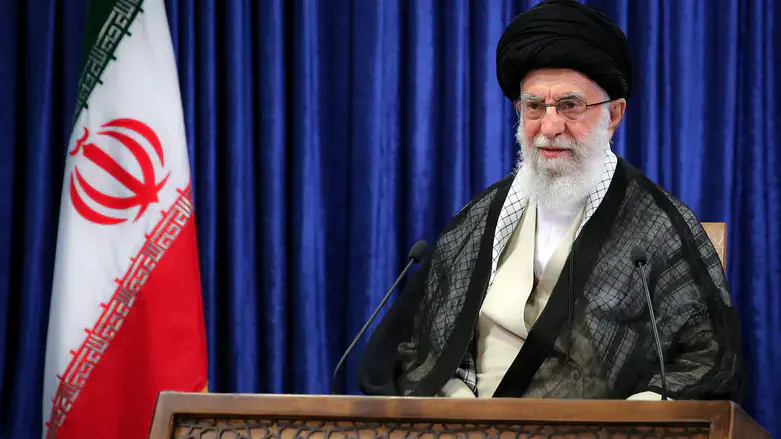
Sebastián Lorenzo Basso, the lead prosecutor in the case of the 1994 AMIA bombing of a Jewish Community Center in Argentina, has requested an arrest warrant for Iranian Supreme Leader Ali Khamenei for what he called the Iranian leader's "direct involvement" in the deadly bombing, Clarin reported today (Wednesday).
Khamenei "was involved in planning the attack, and was responsible for issuing the religious ruling that ordered its execution," Basso stated in his request to federal judge Daniel Rafecas for a national and international warrant.
The attack, carried out by Hezbollah with the assistance of Iranian operatives, resulted in the murders of 85 people and injured hundreds more, and remains to this day one of the worst attacks in Argentina's history. In his opinion to the court, Basso claimed that Khamenei was involved in planning the attack, and was responsible for issuing the religious ruling (fatwa) that ordered its execution.
Basso added that Khamenei is not only a central political figure in Iran, but also responsible for directly overseeing the country's foreign policy and military force. He noted that Khamenei "appointed Hezbollah Secretary General Hassan Nasrallah as his representative in Lebanon," and that "all of Iran's military and foreign policy is under his direct supervision."
He asked the court to order Khamenei to be summoned for questioning and to issue an international arrest warrant through Interpol. He also demanded that local federal forces prepare to arrest the Iranian leader if he appears in Argentine territory and bring him immediately to court.
This demand represents a significant change from the previous positions of state prosecutors, who previously treated Khamenei as someone who holds diplomatic immunity due to his status as supreme ruler. Basso, who has been representing the prosecution in the attack case since the murder of his predessecor, Alberto Nisman, argues that "this approach does not stand up to international law," especially when it comes to crimes against humanity and acts of terrorism.
If the arrest warrant is issued as Basso seeks, the move could deepen diplomatic tensions between Argentina and Iran, which have had minimal diplomatic relations since 1994.
Last year, Argentina called on Interpol to arrest four Lebanese citizens in connection with the attack on the Jewish Community Center. In an appeal to the international police organization, Federal Judge Daniel Rafecas said that “there are well-founded suspicions that the four collaborated with the military wing of Hezbollah – or were its operational agents.”
Basso also requested that a trial "in absentia" be held for ten fugitive Iranian citizens on suspicion of involvement in the bombing.
